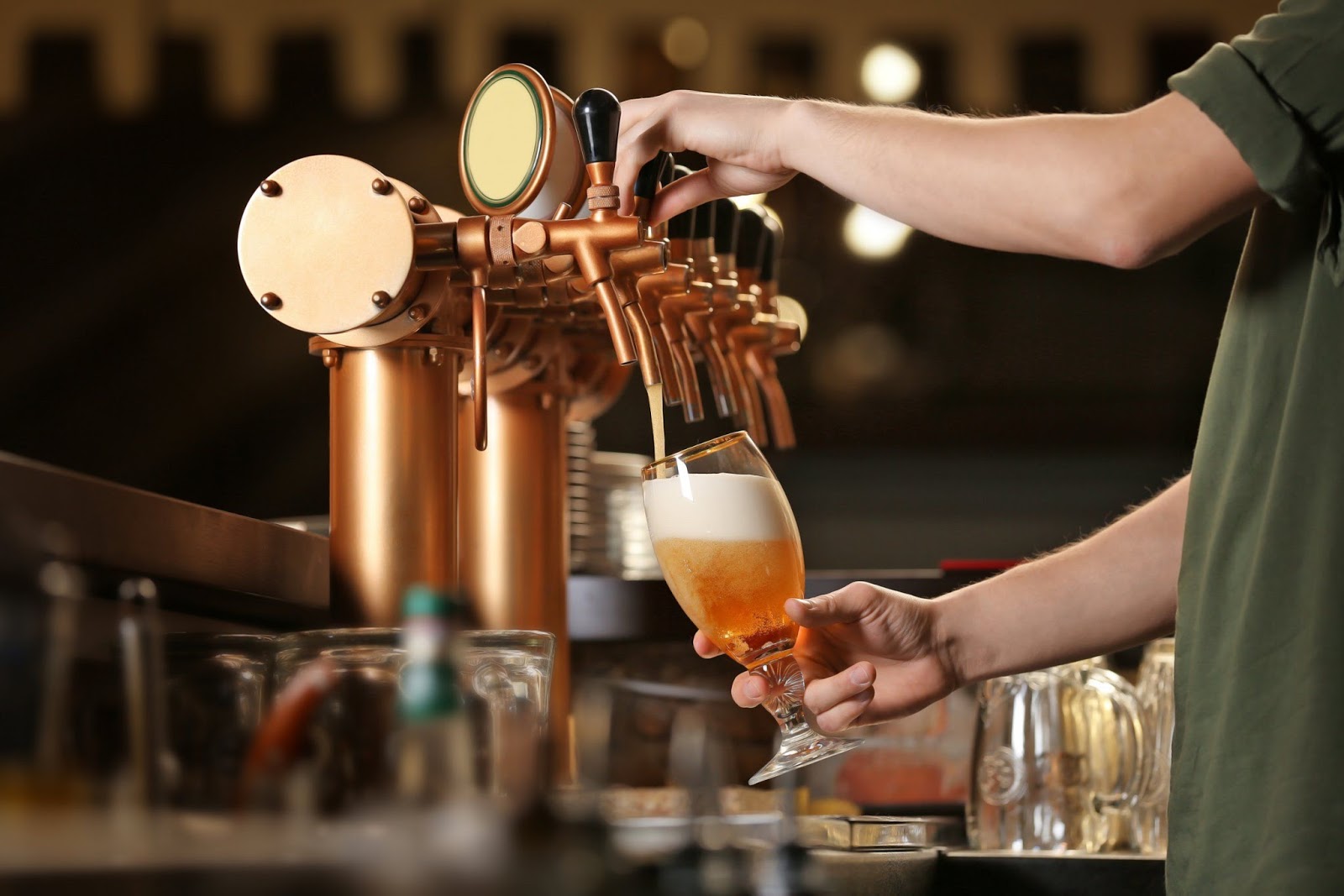Probiotics – those “good bacteria” that supposedly benefit digestion alongside plenty of other health claims – are one of the hottest trends in food today. Probiotics are being touted in everything – from the obvious, like yogurt and kombucha, to the unexpected, like oddly probiotic-enhanced foods such as butter, granola bars and brownie mix. Now, a group of scientists from the National University of Singapore claim they have created the ultimate in trendy health foods – a probiotic beer!
Probiotics tend to prosper in fermented foods, which certainly includes beer. However, though bacteria in beer isn’t uncommon – they can be added on purpose to give sour beers their distinctly tart and funky flavors – getting active probiotics to survive in a beer is a different story. “While good bacteria are often present in food that have been fermented, there are currently no beers in the market that contain probiotics,” said Chan Mei Zhi Alcine, a fourth year student from the Food Science and Technology Programme who came up with the idea for the hopefully healthier brew. “Developing sufficient counts of live probiotics in beer is a challenging feat as beers contain hop acids that prevent the growth and survival of probiotics.”
Working with NUS Associate Professor Liu Shao Quan, Chan took nine months perfecting a recipe that would help her reach her target of a live count of 1 billion probiotics per serving. To achieve that goal, she had to modify the brewing process, which resulted in a slower ferment and a relatively low alcohol content. “For this beer, we used a lactic acid bacterium as a probiotic micro-organism. It will utilize sugars present in the wort to produce sour-tasting lactic acid, resulting in a beer with sharp and tart flavours,” she explained of the resulting sour beer. “The final product, which takes around a month to brew, has an alcohol content of about 3.5 percent.”
The NUS is currently filing a patent for Chan’s probiotic sour beer, which is packed with Lactobacillus paracasei L26, a bacterium first isolated from the human intestine that is believed to neutralize toxins and viruses as well as regulate the immune system. “The general health benefits associated with consuming food and beverages with probiotic strains have driven demand dramatically,” said Liu. “In recent years, consumption of craft or specialty beers has gained popularity too. Alcine’s invention is placed in a unique position that caters to these two trends. I am confident that the probiotic gut-friendly beer will be well-received by beer drinkers, as they can now enjoy their beers and be healthy.”
The next step is finding a brewer in the industry to partner with. Though as Liu pointed out, with so many current buzzwords on its side, we imagine it won’t be long before a probiotic beer hits a bar near you.
SEEN ON FOOD & WINE
Probiotics tend to prosper in fermented foods, which certainly includes beer. However, though bacteria in beer isn’t uncommon – they can be added on purpose to give sour beers their distinctly tart and funky flavors – getting active probiotics to survive in a beer is a different story. “While good bacteria are often present in food that have been fermented, there are currently no beers in the market that contain probiotics,” said Chan Mei Zhi Alcine, a fourth year student from the Food Science and Technology Programme who came up with the idea for the hopefully healthier brew. “Developing sufficient counts of live probiotics in beer is a challenging feat as beers contain hop acids that prevent the growth and survival of probiotics.”
Working with NUS Associate Professor Liu Shao Quan, Chan took nine months perfecting a recipe that would help her reach her target of a live count of 1 billion probiotics per serving. To achieve that goal, she had to modify the brewing process, which resulted in a slower ferment and a relatively low alcohol content. “For this beer, we used a lactic acid bacterium as a probiotic micro-organism. It will utilize sugars present in the wort to produce sour-tasting lactic acid, resulting in a beer with sharp and tart flavours,” she explained of the resulting sour beer. “The final product, which takes around a month to brew, has an alcohol content of about 3.5 percent.”
The NUS is currently filing a patent for Chan’s probiotic sour beer, which is packed with Lactobacillus paracasei L26, a bacterium first isolated from the human intestine that is believed to neutralize toxins and viruses as well as regulate the immune system. “The general health benefits associated with consuming food and beverages with probiotic strains have driven demand dramatically,” said Liu. “In recent years, consumption of craft or specialty beers has gained popularity too. Alcine’s invention is placed in a unique position that caters to these two trends. I am confident that the probiotic gut-friendly beer will be well-received by beer drinkers, as they can now enjoy their beers and be healthy.”
The next step is finding a brewer in the industry to partner with. Though as Liu pointed out, with so many current buzzwords on its side, we imagine it won’t be long before a probiotic beer hits a bar near you.
SEEN ON FOOD & WINE


